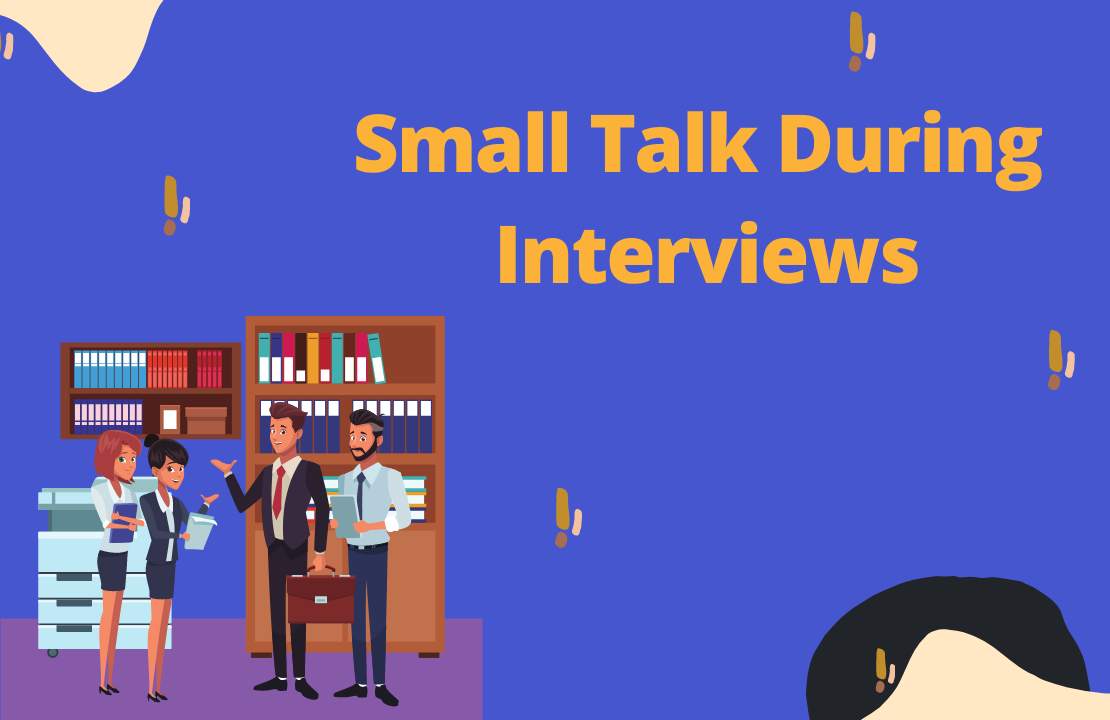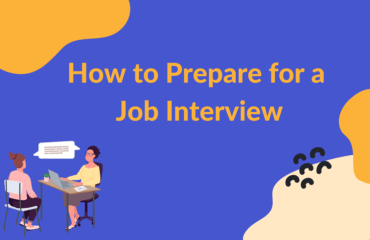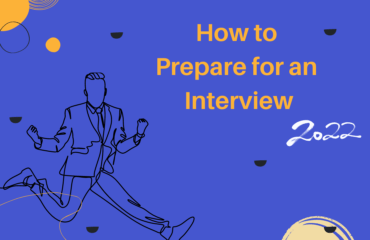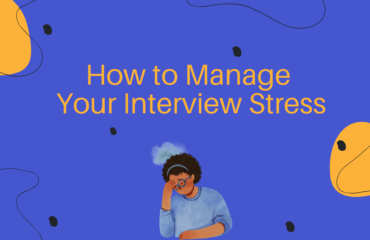Table of Contents
Small talk is an inevitable part of the job interview process. It is a light, informal conversation that interviewers use to break the ice and set the tone for the formal interview. While it may seem like an irrelevant chit-chat, interviewers also use this opportunity to assess your personality and fit for the organization. Hence, how you present yourself can impact how you are perceived as a potential employee.
Engaging in small talk is an effective way to build rapport and establish a connection between the candidate and interviewer on a personal level. Apart from your job skills and previous experience, your small talk conversation with the interviewer can influence the hiring team’s judgment and final selection. With this in mind, let’s look at some of the tips and tricks on how you can leverage small talk to create a lasting impression and stand out.
1) Get to know the interviewer
Your job interview preparation should go beyond how you will respond to interview questions. You also need to consider how you’ll be able to relate with the interviewer on a personal level. So, taking some time to research their background to learn more about their profile should also be part of your interview preparation. Doing so will allow you to connect and communicate with them in a more meaningful way.
When researching the interviewer, avoid getting too personal by poking around on their social media accounts like Facebook, Twitter, or Instagram. Referencing anything too personal can be perceived as stalking and intrusive, which may negatively impact the outcome of your interview. We highly recommend sticking with relevant and professional details.
2) Find a common ground
Finding a common ground is imperative in establishing a genuine connection with the interviewer. Focusing on what connects you with them can foster a sense of belonging, creating a more relaxed ground for you during the interview. Moreover, it will allow you to provide relevant answers when you’re asked small talk questions, which may further lead to an interesting conversation about a shared passion.
When the interviewer asks small talk questions like “How’s your weekend?”, you can bring up something relevant about yourself while also considering the interviewer’s interest. For instance, you discovered in your research that you both like cooking. You may respond, “It was great! I took a cooking class at the <insert name of school> and learned the right technique for perfecting my Japanese souffle cheesecake.”
3) Stick to safe, uncontroversial topics
When you’re meeting someone for the first time, it is generally best not to bring up topics that may be perceived as offensive, uncomfortable, and inappropriate. The same is true when engaging in a small talk with an interviewer. Certain topics tend to be seen as inappropriate as they can cause people to feel unpleasant emotions or put people in an awkward position. Bringing up inappropriate topics can reflect poorly on your social judgment, which may impact the interviewer’s impression of you. Here are some of the topics you need to avoid.
- Complaints about things such as the weather or traffic
- Controversial issues like religion and politics
- Personal information such as salary, embarrassing family situation, or personal failures
- Commenting on the interviewer’s appearance
On the other hand, some of the good small talk topics to bring up during an interview include the weather, sports, entertainment, food, company news and events, and hobbies. Leverage shared interests to connect with the interviewer. As a rule of thumb, keep the tone of your small talk positive regardless of the topic you’re chatting about.
4) Use appropriate body language and tone of voice
According to research, most of what we communicate is accomplished through nonverbal methods. More specifically, 55% of information delivered was determined through body language, 38% related to the tone of voice, and only 7% connected with the actual spoken words. Undoubtedly, body language and tone of voice can significantly influence the interviewer’s perception of you. Hence, conveying a positive vibe through these non-verbal cues is imperative to create a good impression during your small chit-chat. Here are some tips for you.
- When you walk in, greet the interviewer with a firm handshake and a smile.
- Keep an open body position by sitting upright to showcase curiosity and self-confidence.
- Maintain proper eye contact to show the interviewer that they have your full attention.
- Nod your head occasionally to send the interviewer cues that you are listening to what they’re saying.
- Project your voice clearly and let it fluctuate to express emphasis when necessary.
5) Listen attentively and respond appropriately
Small talk is a two-way street. It is not just an opportunity to talk about yourself, but it’s also a chance to demonstrate your ability to listen. You want to showcase that you care about what the interviewer has to say, making them feel valued. Doing so will enable you to be more mindful of your responses during the conversation. Let us give you some tips on how you can demonstrate that you’re a good listener, which will allow you to be perceived as a good team player and respectful of others.
- Concentrate on what the interviewer is saying, avoiding distractions such as mentally preparing a reply while the interviewer is still speaking.
- Don’t interrupt, finish the interviewer’s sentences, or top the story.
- Avoid changing the subject abruptly as this may convey impatience and boredom.
- When the interviewer stops talking, respond appropriately by following up with a relevant comment or question.
6) Find the right timing
There’s no doubt that in most cases, investing in small talk can help you stand out. However, this may not always be the case. Some interviewers may not be eager for a mini chit-chat. To make small talks work in your favor, finding the right opportunity is imperative. One of the best ways to do this is by using the mirroring principle. If you see that the interviewer is not open to small talk, don’t force it. Instead, try to go with the interviewer’s preferred flow of the conversation to gain their liking.
Besides your qualifications, small talk also plays an essential role in the success of your interview. Use the tips outlined in this article to leverage small talk to your advantage. As a rule of thumb, focus on being personable, polite, and attentive to establish a genuine connection. Be yourself and let the chemistry unfold naturally. If you need additional interview preparation tips, you can always reach out to us.











